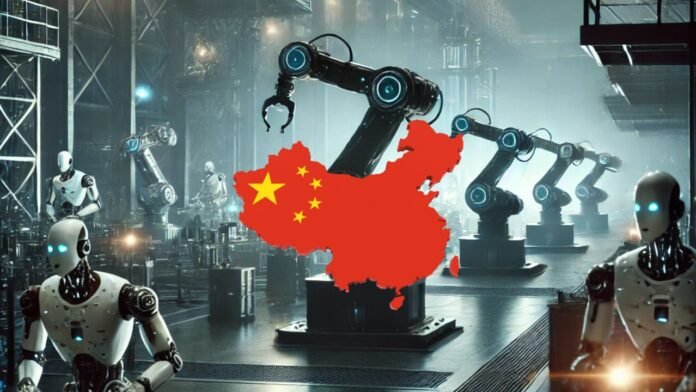The manufacturing industry is undergoing a revolutionary transformation, driven by rapid advancements in artificial intelligence (AI), robotics, and the Internet of Things (IoT). At the forefront of this change is the emergence of fully autonomous dark factories—high-tech production facilities that operate without human workers, running 24/7 without the need for lighting. These futuristic factories are setting new standards for efficiency, precision, and sustainability, marking the beginning of the next industrial revolution.
What Are Dark Factories?
Dark factories are fully automated manufacturing plants that function without on-site human intervention. With AI-powered robotics, real-time data analytics, and IoT-driven smart systems, these factories optimize production processes to achieve seamless, error-free manufacturing. The absence of human workers eliminates the need for lighting, reducing energy consumption and operating costs, while ensuring consistent output and quality.
Key Features of Fully Autonomous Factories
1. Complete End-to-End Automation
Dark factories are designed to handle every stage of production autonomously. From sourcing and processing raw materials to assembling, packaging, and conducting quality checks, these factories operate with minimal manual oversight. The result is increased speed, accuracy, and reduced operational costs.
2. AI-Driven Intelligent Networks
By integrating AI and IoT, dark factories enable real-time machine-to-machine communication. These intelligent systems continuously analyze data, predict maintenance needs, and make necessary adjustments to optimize efficiency, minimize downtime, and enhance productivity.
3. Advanced AI-Powered Quality Control
Unlike traditional factories, where human inspectors manually check products for defects, dark factories leverage machine-learning algorithms to monitor and ensure quality at every step. AI-driven quality assurance systems detect inconsistencies, reducing material waste and ensuring superior product reliability.
4. Ultra-Clean Manufacturing Environments
Industries such as pharmaceuticals, electronics, and medical device manufacturing demand a high level of cleanliness. Dark factories incorporate advanced air purification and dust-control systems, ensuring contamination-free environments without the need for human intervention.
5. Scalable & High-Speed Production
Automation allows dark factories to achieve exceptional production speeds, assembling products in seconds. The scalability of these facilities enables businesses to meet increasing market demands without compromising quality, giving them a significant competitive edge.
6. Energy-Efficient & Sustainable Operations
One of the biggest advantages of dark factories is their ability to optimize energy consumption dynamically. By adjusting power usage based on real-time demand, these factories significantly reduce operational costs while promoting sustainable and eco-friendly manufacturing practices.
The Growing Investment in Smart Manufacturing
The rise of dark factories is being fueled by multi-billion-dollar investments in AI and automation technologies. As industries recognize the efficiency, cost-effectiveness, and sustainability benefits of fully autonomous factories, companies worldwide are integrating these innovations into their production models.
Modern dark factories are producing high-tech products, including electric vehicles, medical equipment, and consumer electronics, pushing the boundaries of what is possible in mass production.
How Dark Factories Are Reshaping the Future of Manufacturing
The widespread adoption of fully automated factories will have profound implications for the global manufacturing sector:
✅ Uninterrupted Productivity: 24/7 operation ensures maximum efficiency and output.
✅ Unmatched Quality Control: AI-driven real-time monitoring drastically reduces errors.
✅ Sustainable Production: Energy optimization leads to environmentally friendly manufacturing.
✅ Evolving Workforce Needs: While manual jobs decrease, demand for AI, robotics, and data science expertise grows.
✅ Global Industrial Competitiveness: Companies that embrace smart manufacturing gain a significant edge over traditional production models.
The Road Ahead: A Smart Factory-Driven Future
Dark factories are no longer a concept of the distant future—they are rapidly becoming the new industry standard. By harnessing AI, IoT, and automation, these cutting-edge facilities are unlocking unprecedented efficiency, precision, and sustainability in manufacturing.
As technology advances, fully autonomous factories will redefine the global production landscape, making manufacturing smarter, faster, and more sustainable than ever before. The future of production is here, and AI and automation power it.


